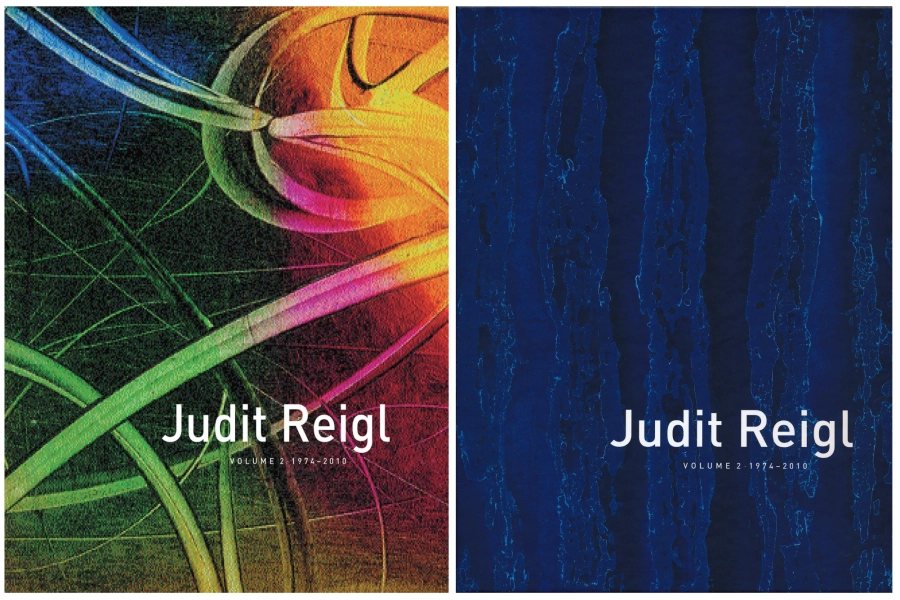Judit Reigl’s oeuvre constitutes an important chapter in post-World War II. art. Her works, as startling now as when they were made, are charged by undiminished power, and prove that vital art is at once timely and timeless. Her spontaneously determined and self-engendered periods of continuity and renewal add up to an oeuvre of over six decades. Just as like Jackson Pollock, she left surrealism behind and she started to concentrate on ‘Automatic Writing’ , which was one of the most significant new working method of the era. Reigl’s steadfast honesty and utter lack of compromise give her a unique standing in contemporary art. Her paintings have been acquired by the Musée Nationale d’Art Moderne at the Centre Pompidou in Paris, the TATE Modern in London and the Metropolitan Museum of Art and the Museum of Modern Art in New York, as well as the Museum of Fine Arts in Houston, Texas, are currently engaged with this unmistakably decisive and historically significant oeuvre.
The first volume of this publication is the most complete survey of Reigl’s paintings which introduces her series of the works from the fifties until 1974 featurig the following series of her art: Surrealism, Outburst, Center of Dominance, Guano, Mass Writing, Weightlessness, Man and Decoding. The publication should enable the viewer to achieve a deeper understanding of this truly vital and immensely rewarding oeuvre., it was published on the occasion of Judit Reigl’s retrospective exhibition in Hungary.
The second volume introduces Reigl’s series of the works made between 1974 until 2010. The book represents artworks from the following series: Unfolding, Entrance - Exit, Face to, Body in Plural, Out, Priceless Body, and New York 11 September 2001, as well as some of her recent works. This classic monograph has been the standard established work on Judit Reigl. It is now available in an updated and expanded edition.
The concise but masterly survey provides an authoritative introduction to Reigl's work, while the full catalogue gives detailed, scholarly and up-to-date information on her complete oeuvre. Judit Reigl sets herself above the argument: “What takes precedence for me, is the discovery, that experience of being, in an universal way. “ Judit Reigl (Cf. the “Interview” with Judit Reigl and Jean- Paul Ameline, 28 November-5 December 2008.) On 3 April 2015 in her Marcoussis studio, she said as follows:: “There was no path. Life is the path, one looks for one’s path, one finds it.” Judit Reigl


